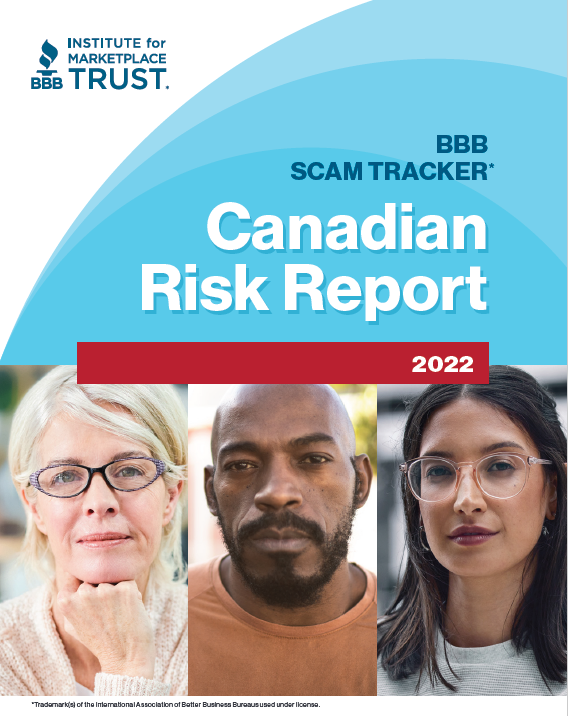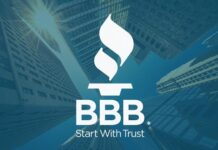HOME improvement scams became the #1 riskiest scam type reported in Canada in 2022, according to a new report from the Better Business Bureau.
Reports of home improvement scams by Canadians increased 51.2% in 2022, up from 4.1% of reports to 6.2% in 2022. People also lost more money to this scam type, with a median dollar loss of $1,900, up 187.4% from $661 in 2021.
The overall median dollar loss from all scams reported by Canadians in 2022 was $300, a 20% increase from the 2021 median dollar loss ($250), according to the 2022 BBB Scam Tracker Risk Report. The percentage of Canadians who reported losing money after being targeted by a scam (susceptibility) increased from 45.1% in 2021 to 46.9% in 2022.
“Home improvement scams rose from the #4 riskiest scam type reported by Canadians in 2021 to #1 in 2022,” said Simone Lis, President and CEO of BBB serving Mainland BC and the Yukon Territory, on Monday. “This scam type is often perpetrated by door-to-door solicitors who offer quick, low-cost repairs. They take payment and never return to do the work. In some variations, they do shoddy work, don’t finish the job, or dramatically increase the price after the original agreement. Our report includes tips on how to avoid this scam type, as well as many other scams.”
Cryptocurrency scams, the #1 riskiest in 2021, fell to the #2 riskiest scam type in 2022 due to a slight decrease in susceptibility and median dollar loss. Advance fee loan scams dropped from #2 riskiest in 2021 to #3 riskiest in 2022. Employment scams rose to #5 on this year’s list, up from #7 riskiest in 2021.
Donna Stark, a Burnaby resident, was swindled out of $16,000 in an elaborate cryptocurrency scam in 2022.
“The salesperson only left [stopped calling and emailing] once he took out every penny from my credit card and my chequing account,” said Stark, in her BBB Scam Tracker report. “Then his partner phoned me […] to say the market crashed and I lost all my money. I knew that this was not true and the whole thing was a scam, and that they got what they wanted from me. There was no one to phone as they used burner phones and I wrote but they never responded.”
New to the 2022 top 10 riskiest scams in Canada list compared to 2021 are investment scams (#4), rental scams (#7) and travel/vacation/timeshare scams (#9).
In 2022, ages 35-44 reported the highest median dollar loss ($500) and the biggest increase in median dollar loss, up from $250 in 2021. Ages 25-34 were the only age group that did not report an increase in median dollar loss in 2022. In 2022, ages 35-44 reported higher susceptibility (57.2%) than other age groups
Consistent with previous reports, more Canadian women (63.5%) reported scams to BBB Scam Tracker than men (36.5%). The percentage of women who reported losing money after being targeted by a scam (susceptibility) increased from 44.4% in 2021 to 47.8% in 2022, while susceptibility for men dropped from 48.5% in 2021 to 46.7% in 2022. Although the median dollar loss reported by both men and women increased in 2022, the median dollar loss reported by men ($453) was substantially higher than by women ($249).
A number of non-financial impacts were also reported in 2022 that are worthy of note:
- 47.5% reported losing confidence or peace of mind after being targeted by a scam.
- 8.4% of survey respondents reported losing money to a scam at least three times; 23.5% reported losing money two or more times.
- People who reported losing money 3+ times were more likely to say they
- panic during stressful situations,
- felt financial stress during the past year, and
- are isolated (live alone or have fewer friends), compared to those who reported losing money 0-2 times.
“If you encounter a scam, we encourage you to share your story. There is no shame in dealing with scams. There is power in telling your story of how you got scammed or how you narrowly avoided a scam. The CAFC estimates that Canadians report only 5-10% of actual fraud cases, says the BBB.
Anyone who suspects they have been the victim of cybercrime or any fraud should report it to their local police, the Canadian Anti-Fraud Centre’s online reporting system, and the BBB Scam Tracker at BBB.org/scamtracker.
“Even if you’re not a victim, report it anyway. By working together, we can prevent scammers from stealing and eroding marketplace trust in the future,” adds the BBB.
REPORT:












